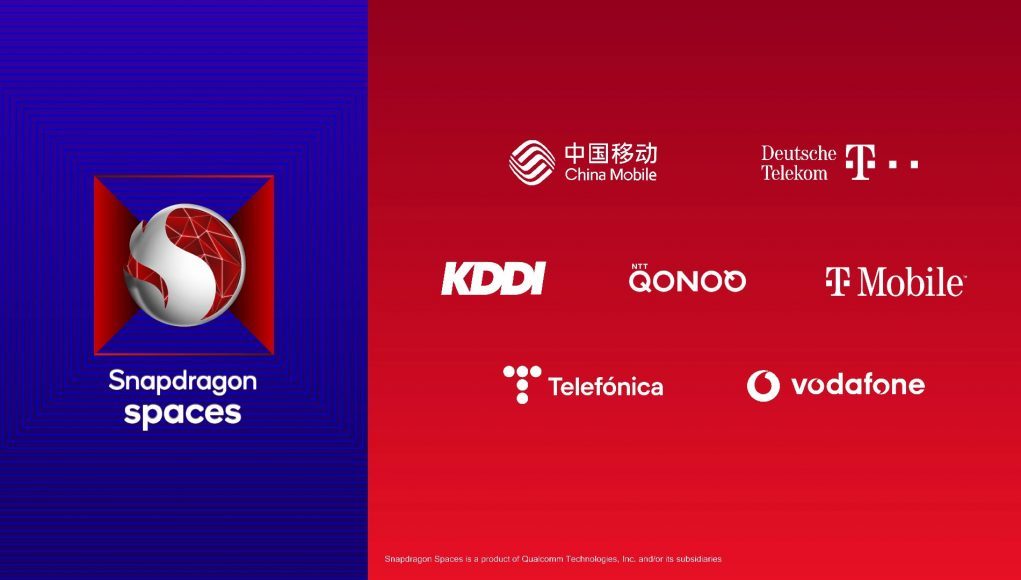Qualcomm announced at Mobile World Congress (MWC) today it’s partnering with seven global telecommunication companies in preparation for the next generation of AR glasses which are set to work directly with the user’s smartphone.
Partners include CMCC, Deutsche Telekom, KDDI Corporation, NTT QONOQ, T-Mobile, Telefonica, and Vodafone, which are said to currently be working with Qualcomm on new XR devices, experiences, and developer initiatives, including Qualcomm’s Snapdragon Spaces XR developer platform.
Qualcomm announced Snapdragon Spaces in late 2021, a software tool kit which focuses on performance and low power devices which allows developers to create head-worn AR experiences from the ground-up or by adding head-worn AR to existing smartphone apps.
Qualcomm and Japan’s KDDI Corporation also announced a multi-year collaboration which it says will focus on the expansion of XR use cases and creation of a developer program in Japan.
Meanwhile, Qualcomm says OEMs are designing “a new wave of devices for operators and beyond” such as the newly unveiled Xiaomi Wireless AR Glass Discovery Edition, OPPO’s new Mixed Reality device and OnePlus 11 5G smartphone.
At least in Xiaomi’s case, its Wireless AR Glass headset streams data from compatible smartphones. Effectively offloading computation to the smartphone, the company’s 126g headset boasts a wireless latency of as low as 3ms between the smartphone device to the glasses, and a wireless connection with full link latency as low as 50ms which is comparable to wired solution.







